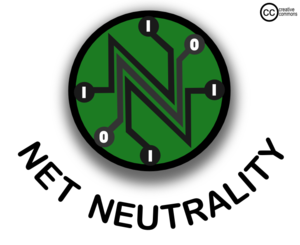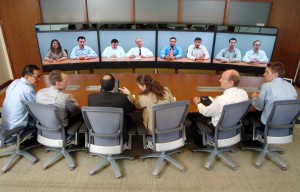 The newly proposed rules on the Open Internet by the FCC have triggered an intense debate across the United States summed up succinctly by Senator Al Franken, D-Minn, “This is the free speech issue of our time.” While he is correct, he’s only touching the surface of the impact of how the proposed “fast lane” will hit individuals and businesses.
The newly proposed rules on the Open Internet by the FCC have triggered an intense debate across the United States summed up succinctly by Senator Al Franken, D-Minn, “This is the free speech issue of our time.” While he is correct, he’s only touching the surface of the impact of how the proposed “fast lane” will hit individuals and businesses.
So much of what we do in modern life is technology driven and the internet is at the heart of that. This is the age of smart phones and tablets where we are almost never without an internet connection immediately at our fingertips for research and communication. One of the key issues that has been raised is how much this could affect people’s ability to access streaming media like Netflix, Hulu, YouTube, Google Play, and iTunes in their homes because those companies will be forced to pay additional costs to the Internet Service Providers (ISPs) like Comcast, Verizon, and Time Warner to ensure that the movies and videos reach customers’ homes uninterrupted. This issue, though, stretches far beyond that.
While a big deal has been made about how these rules could alter consumers’ access to content on the internet, the discussion over how this would impact business’s ability to continue to utilize communication technology such as video conferencing and Voice over IP telephone systems seems to have slipped through the cracks.
Over the last s everal years the audio visual industry has been making strides to converge with the IT world. More and more video and audio signals are being sent from point to point over networks. In most corporate offices the boardroom might be where the technology is housed and most often used. These systems will typically include a large format HDTV, speakers, microphones on the conference table, a video conference camera beneath the TV, and a touch panel that controls all the devices. This system was designed with care by an AV professional to provide your company the capability of communicating with employees or clients efficiently and effectively without having to add the cost of travel to your bottom line. Unfortunately, if the proposed Net Neutrality rules move forward that communication capability will be at risk.
everal years the audio visual industry has been making strides to converge with the IT world. More and more video and audio signals are being sent from point to point over networks. In most corporate offices the boardroom might be where the technology is housed and most often used. These systems will typically include a large format HDTV, speakers, microphones on the conference table, a video conference camera beneath the TV, and a touch panel that controls all the devices. This system was designed with care by an AV professional to provide your company the capability of communicating with employees or clients efficiently and effectively without having to add the cost of travel to your bottom line. Unfortunately, if the proposed Net Neutrality rules move forward that communication capability will be at risk.
Video conferencing has become so engrained in our modern way of life through free services like Skype, FaceTime, and Google Hangouts that we don’t think much of how these systems function. We come to accept the fact that because these are free services, the quality of the video might be choppy, grainy, freeze from time to time, or even drop completely. But how will you, or your executive team, feel about a system that you spent at least $25,000 to have installed functioning in the same way? That is what we could be heading towards if these proposed rules are allowed to take shape.
These video calls all utilize connections to the company offices provided by the ISPs. That means that as soon as that data leaves your offices it is under the control of the ISPs. With the FCC’s proposed fast lane rules, unless your company chose to pay a premium cost to ensure that any data being transmitted would be treated with priority, the information your company would try to send out would be susceptible to interruptions.
The cabling infrastructure that physically carries data has a finite amount of bandwidth available. The addition of a fast lane does not mean that the ISPs will be laying down new fiber or copper connections to your building for those that choose to pay for access to this prioritized stream, it means that they are going to give that data priority while those that aren’t paying will end up with less available bandwidth. Think of the HOV/Carpool lane on most freeways during rush hour traffic with most people crawling along while one lane remains wide open for special cars. As priority data increases, the amount of bandwidth available for non-priority data decreases. This means that your company’s digital communications could be interrupted if a company in your area paying for priority service has a sudden increase in traffic.
With this impact on people’s ability to communicate and interact across a network, the result will be fewer businesses using and purchasing audio visual equipment and systems that allow for unified communication and collaboration between businesses. This could result in less money being invested in audio visual systems and lost jobs due to a decrease in revenue for the audio visual technology industry.
The audio visual industry in the United States employs an estimated 500,000 professionals who work in manufacturing, sales, system design, and installation of these systems. If we examine just the new commercial construction industry, which accounts for $1 trillion annually, the AV and low voltage contractors account for roughly 5.7% or $57 billion worth of business. That number only factors in new construction business which is roughly 60% of the revenue the AV industry generates each year. These professionals work to improve communication capabilities in corporate facilities, educational institutions, and government properties. Not only would all of these professionals be impacted, but so would your business’s capability to communicate and collaborate reliably with those not in your office.
 These rules are currently up for public comment at www.fcc.gov/comments. You can also reach out directly to your congressional representative or state senator and let them know you want them to protect and promote an open internet. It will only be through taking action that you can ensure your business will not be impacted and you will earn the gratitude of thousands of audio visual professionals in the United States.
These rules are currently up for public comment at www.fcc.gov/comments. You can also reach out directly to your congressional representative or state senator and let them know you want them to protect and promote an open internet. It will only be through taking action that you can ensure your business will not be impacted and you will earn the gratitude of thousands of audio visual professionals in the United States.
Recently the AV industry held its largest trade show of the year, InfoComm, in Las Vegas. 3 manufacturers came together to discuss exactly how the proposed “fast lane” rule might impact the industry and its customers both now and moving forward. You can see that panel here. Additionally, if you’d like more information you can find other pieces I have written discussing how all of this could affect the industry on my website.


Pingback: Net Neutrality Posts | Sound ReasonSound Reason